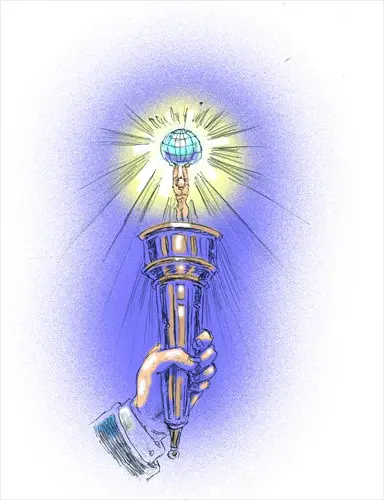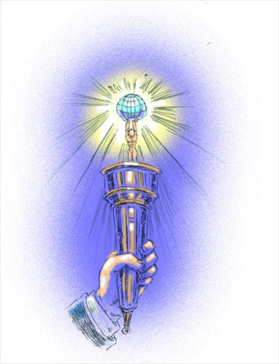Illustration: Peter C. Espina/GT
By Georgy Toloraya Source:Global Times, People’s Daily
The Group of 20 (G20) summit in Hangzhou this weekend is not the first to be hosted by a BRICS (Brazil, Russia, India, China, and South Africa) country, one took place in Russia in 2015. But never before has the political rift between Western and emerging countries been so apparent.
Russia is at odds with the US and EU on several issues, many of which boil down to sovereignty and the right to defend one's national interests. Also Russia's stance on a polycentric world puts Eurasianism at the center of its foreign policy which corresponds with China's approach to regional priorities.
China faces increasing pressure from the US on issues like the South China Sea and foreign strategy priorities, as well as on the country's general strive for multilateralism and the Belt and Road initiative.
At the same time, Brazil is facing a setback in its push, under its former two presidents, for a more independent foreign policy agenda due to internal turmoil. India is cautiously pursuing multiple policies, aiming to profit from several directions, one of which is BRICS. South Africa is still energetic, although beset by internal problems. Thus, BRICS as a geopolitical entity is experiencing some challenges.
Nevertheless, the BRICS countries, despite the talk of a crisis because of slowing growth, are still united in their basic understanding of a need to change the global governance system and move toward a new world order which would take into account the interests of emerging nations outside of the "golden billion."
BRICS is therefore more than just a project of political elites. It is platform for civilizations for a new world order rather than just an economic union or an instrument to improve their bargaining positions in global financial architecture and trade regimes. At the same time the BRICS philosophy might be seen as an attempt to formulate a new development paradigm that does not follow neoliberal theories. Chinese leaders stress that eradication of poverty and sustainable development are not only a common moral responsibility for the international community, but also a powerful source for world economic growth. Therefore the interests of emerging powers on major issues might diverge from those of the Group of 7 (G7) members.
The Hangzhou summit is unlikely to become a showdown between G7 and BRICS - although these blocks vote differently on many issues - but it will be interesting to see how these two groups address global security and hot spots in different regions. BRICS leaders held a separate meeting on the sidelines of the Hangzhou summit on Sunday to consolidate joint positions in the lead up to an annual summit in Goa, India.
Of course much of this year's G20 agenda such as green financing, sustainable infrastructure, economic growth and the development of emerging economies coincides with the BRICS basic agenda.
China has set the goals of its leadership at the G20 to include the development of a blueprint for innovative growth, implementation of the UN 2030 Agenda for Sustainable Development, reforms to international finance (especially a push to the International Monetary Fund to finish the 15th General Quota Review), fighting corruption, support for the industrialization of developing countries and promoting the Paris Agreement on climate change.
All of the above are also core issues for BRICS that cannot be solved without cooperation with developed countries, so a constructive dialogue would be mutually beneficial. The Hangzhou summit can become a venue for that dialogue under Chinese guidance.
Therefore the G20, as an instrument closest to a global government the world has today, is essential for finding a mutually beneficial compromise and moving forward to jointly face the challenges of the world today. Given that the BRICS chairmanship will be passing to China at the beginning of next year, the decisions made in Hangzhou may well become a guiding light for China's stewardship.
The author is a senior research fellow with the Pangoal Institution, a Beijing-based think tank, and the director of the Center for Asian Strategy at the Institute of Economy of the Russian Academy of Sciences.
By Georgy Toloraya Source:Global Times, People’s Daily
The Group of 20 (G20) summit in Hangzhou this weekend is not the first to be hosted by a BRICS (Brazil, Russia, India, China, and South Africa) country, one took place in Russia in 2015. But never before has the political rift between Western and emerging countries been so apparent.
Russia is at odds with the US and EU on several issues, many of which boil down to sovereignty and the right to defend one's national interests. Also Russia's stance on a polycentric world puts Eurasianism at the center of its foreign policy which corresponds with China's approach to regional priorities.
China faces increasing pressure from the US on issues like the South China Sea and foreign strategy priorities, as well as on the country's general strive for multilateralism and the Belt and Road initiative.
At the same time, Brazil is facing a setback in its push, under its former two presidents, for a more independent foreign policy agenda due to internal turmoil. India is cautiously pursuing multiple policies, aiming to profit from several directions, one of which is BRICS. South Africa is still energetic, although beset by internal problems. Thus, BRICS as a geopolitical entity is experiencing some challenges.
Nevertheless, the BRICS countries, despite the talk of a crisis because of slowing growth, are still united in their basic understanding of a need to change the global governance system and move toward a new world order which would take into account the interests of emerging nations outside of the "golden billion."
BRICS is therefore more than just a project of political elites. It is platform for civilizations for a new world order rather than just an economic union or an instrument to improve their bargaining positions in global financial architecture and trade regimes. At the same time the BRICS philosophy might be seen as an attempt to formulate a new development paradigm that does not follow neoliberal theories. Chinese leaders stress that eradication of poverty and sustainable development are not only a common moral responsibility for the international community, but also a powerful source for world economic growth. Therefore the interests of emerging powers on major issues might diverge from those of the Group of 7 (G7) members.
The Hangzhou summit is unlikely to become a showdown between G7 and BRICS - although these blocks vote differently on many issues - but it will be interesting to see how these two groups address global security and hot spots in different regions. BRICS leaders held a separate meeting on the sidelines of the Hangzhou summit on Sunday to consolidate joint positions in the lead up to an annual summit in Goa, India.
Of course much of this year's G20 agenda such as green financing, sustainable infrastructure, economic growth and the development of emerging economies coincides with the BRICS basic agenda.
China has set the goals of its leadership at the G20 to include the development of a blueprint for innovative growth, implementation of the UN 2030 Agenda for Sustainable Development, reforms to international finance (especially a push to the International Monetary Fund to finish the 15th General Quota Review), fighting corruption, support for the industrialization of developing countries and promoting the Paris Agreement on climate change.
All of the above are also core issues for BRICS that cannot be solved without cooperation with developed countries, so a constructive dialogue would be mutually beneficial. The Hangzhou summit can become a venue for that dialogue under Chinese guidance.
Therefore the G20, as an instrument closest to a global government the world has today, is essential for finding a mutually beneficial compromise and moving forward to jointly face the challenges of the world today. Given that the BRICS chairmanship will be passing to China at the beginning of next year, the decisions made in Hangzhou may well become a guiding light for China's stewardship.
The author is a senior research fellow with the Pangoal Institution, a Beijing-based think tank, and the director of the Center for Asian Strategy at the Institute of Economy of the Russian Academy of Sciences.
 Menu
Menu
 G20 guides China’s BRICS stewardship
G20 guides China’s BRICS stewardship

















